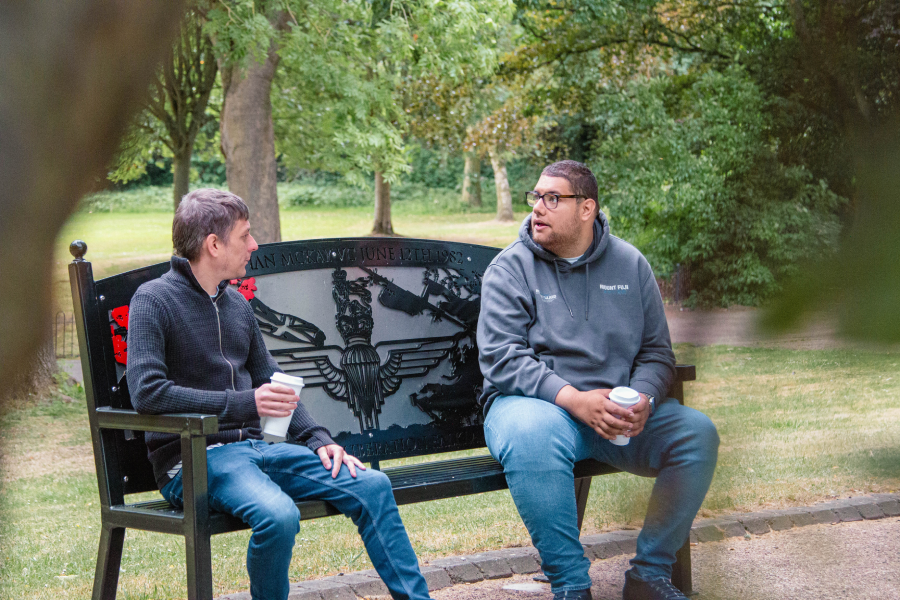Urgent Help
Call 999 if you or someone you know needs urgent assistance for a life-threatening emergency (mental or physical health).
Recognising signs that someone might be thinking about suicide can be hard. Especially, because they are likely to hide how they are really feeling from family, friends, and colleagues. Here are some of the signs that could show someone is thinking about suicide.
It isn’t always obvious when someone is struggling — many people hide how they really feel.
These pointers can help you notice when something isn’t quite right.
Recognise the signs

Changes in behaviour
A difference in someone’s overall mood
A difference in how someone looks
Loss of interest
Drinking more alcohol or using drugs
Communication
Difficulty explaining how they are feeling or what they are thinking
Difficulty answering questions
Using humour to hide how they are really feeling
Experienced a trauma or significant event
Experienced a trauma or significant event
Autistic people may find it hard to explain how they feel and may mask their emotions. Direct questions
can help more than open ones, and some people prefer typing or writing to speaking.
Acting differently to their usual self; changes in self-care or weight. Stimming can increase under stress; looping thoughts can lead to feeling trapped. Loss of interest or, conversely, hyper-focus; meltdowns; difficulty with change.Recognise the signs in autistic people

Behaviour and appearance
Repetitive behaviours or thoughts
Interests and routines
Risk factors
If you’re worried about someone, you don’t need all the answers. A calm conversation and a few practical steps
can make a real difference.
What you can do
Start the conversation
Listen and stay with them
Reduce immediate risk
Get help now
After the moment
Suicide is a hard topic to talk about — but it’s okay to ask someone if they are thinking about suicide. Open conversations reduce stigma and encourage people to seek help. Take around 30 minutes to complete the free training from Zero Suicide Alliance.
Suicide prevention training
